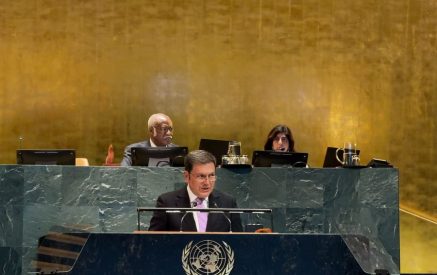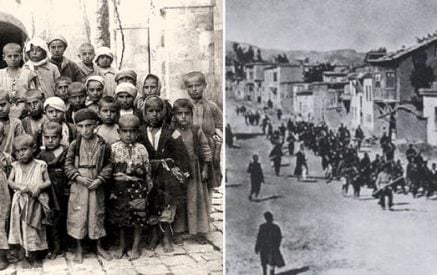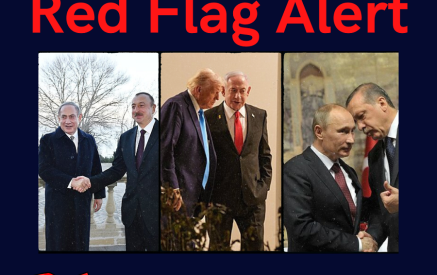European Union. On 9 December, the EU marks the International Day of Commemoration and Dignity of the Victims of the Crime of Genocide and of the Prevention of this Crime.
On 9 December 1948, in the aftermath of the Holocaust and Second World War, the world came together to say ‘never again’ to the horrendous atrocities committed: the UN General Assembly adopted the Convention on the Prevention and Punishment of the Crime of Genocide, which, together with the Universal Declaration on Human Rights, celebrated its 70th anniversary last year. Europe under Nazi rule, Armenia, Cambodia, Rwanda, Bosnia, Darfur…. In the past 150 years, tens of millions of men, women and children have lost their lives in genocide or mass atrocities. Millions have been tortured, raped or forced from their homes, according to the NGO United to End Genocide(link is external). Since 2015, we have marked the International Day of Commemoration and Dignity of the Victims of the Crime of Genocide and of the Prevention of this Crime, to pay tribute to the memory of the victims and ensure that the so-called ‘crime of crimes’ does not happen again on Earth.
“We must never forget the atrocities of the past. We owe it to the victims of these crimes against humanity. We also owe it to ourselves: we can only build a better future if we acknowledge the dark days of the past. It is a moral obligation towards humanity”, said the EU High Representative Josep Borrell in an official statement to remember this date. “Genocide does not just happen overnight. It is a process. There are always warning signs. We must act upon these signs immediately. Exacerbated nationalism, xenophobia, racial and ethnic profiling must be fought with the strongest determination”.
In the past twelve months, 3 countries – Dominica, Mauritius and Turkmenistan – have acceded to the Genocide Convention, bringing the total number of parties to 152, including all EU Member States. However, 45 States in the world have not ratified the Convention yet.
Read also
The Genocide Convention provides the legal basis for action by States to prevent genocide. Its article 2 defines genocide as “any of the following acts committed with intent to destroy, in whole or in part, a national, ethnical, racial or religious group… “, including:
- Killing members of the group;
- Causing serious bodily or mental harm to members of the group;
- Deliberately inflicting on the group conditions of life calculated to bring about its physical destruction in whole or in part;
- Imposing measures intended to prevent births within the group;
- Forcibly transferring children of the group to another group.
A look back to the main genocides of the 20th and 21st centuries
Armenia (1915-1923)
Ethnic Armenians living in the Ottoman Empire suffered massacres and massive forced deportations. It is estimated that more than 1 million people died.
The Holocaust (1933-1945)
Between their arrival to power and their final defeat in the Second World War, the Nazis murdered six million Jews and five million Slavs, Roma, disabled, Jehovah’s Witnesses, homosexuals, and political and religious dissidents.
Cambodia (1975-1979)
Between 1.7 and 2 million Cambodians died in the Khmer Rouge’s “Killing Fields”. It was the result of the “re-education” campaign started by this radical communist regime, who singled out doctors, teachers, monks, journalists, artists and other educated people.
Rwanda (1994)
In the midst of a civil war, the deadly attack on Rwandan President Juvenal Habyarimana’s plane on 6 April 1994 provided the spark for a genocide against the Tutsi minority and moderate civilians from the Hutu majority. The estimated death toll ranges from 500,000 to over 1 million Rwandans killed.
Bosnia (1995)
In the context of the conflict started with the disintegration of Yugoslavia, the Serbs started a campaign of ethnic cleansing against Bosniaks and Croatian civilians. The massacre reached its height in July 1995 at the so-called Srebrenica genocide, where 8,000 Bosniaks were murdered.
Darfur (2003-2007)
After decades of conflicts between the North and South, in 2003 the situation exploded as the Government of Sudan carried out genocide against civilians from the Darfur region of Sudan, murdering 300,000 & displacing over 2 million people.
“The Responsibility to Protect and the prevention of genocide and other atrocity crimes form an integral part of the EU's foreign and security policy. The EU will continue working with national and international partners including civil society to prevent genocide and to fight impunity wherever it occurs”, Borrell stated.
In 2002, the EU council established the Genocide Network as a body that ensures close cooperation between national authorities in investigating and prosecuting genocide, crimes against humanity and war crimes. As a result, EU member States are giving more priority to investigating core international crimes: the number of new cases rose by a third over the last three years, with 1.430 new investigations launched in 2018.
Photo: Srebrenica–Potočari Memorial and Cemetery for the Victims of the 1995 Crime


























































